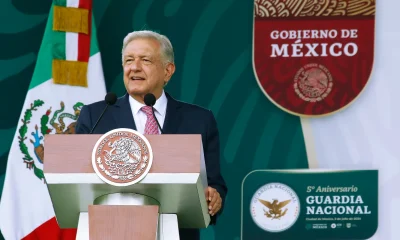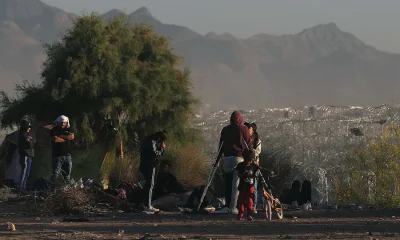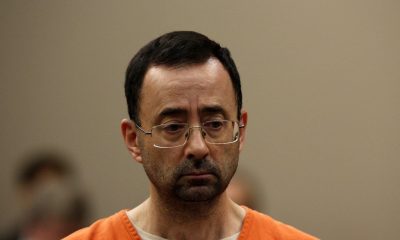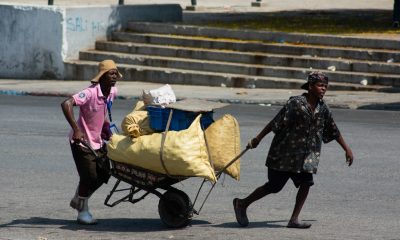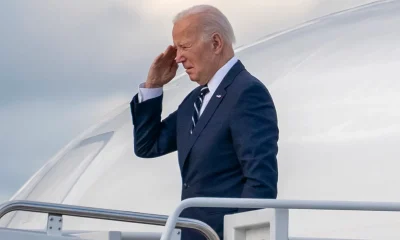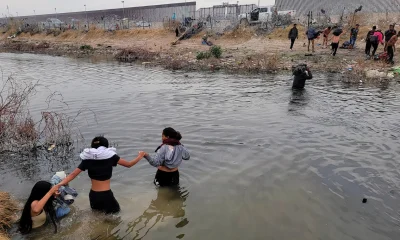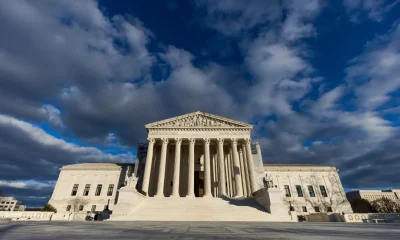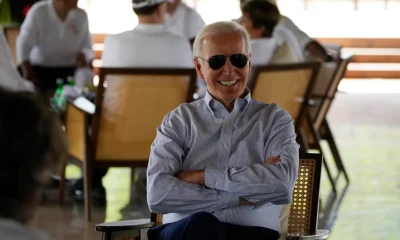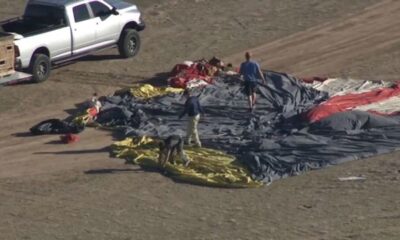International
The pro-Palestinian student movement in the United States looks at itself in history to continue
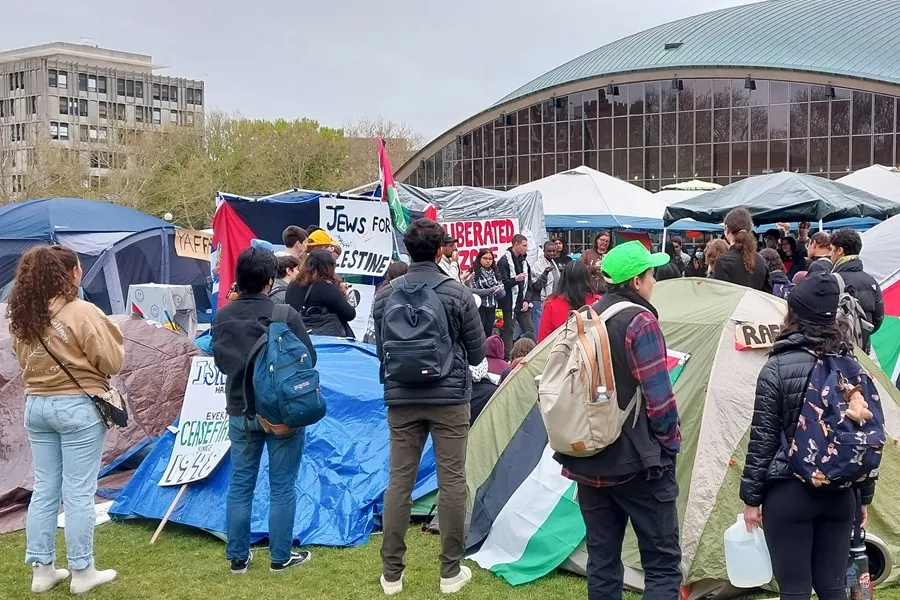
Opposition to the war in Gaza has triggered a student movement in the United States not seen since the protests against apartheid in South Africa in the 1980s and in rejection of the Vietnam War in the 60s, although the difference is the strong police reaction to more peaceful rallies.
The one that has already been called by historians such as Robert Cohen, of New York University, as the largest university movement in the United States in the 21st century has parallels with the uprisings of the past, but is also unique in forcing Washington to “be more careful with what it does with its military help.”
For Juan González, who was one of the leaders of the 1968 protests at Columbia University (New York), today’s demonstrations are much more peaceful but are facing more immediate repression.
“Never in the history of student protests has a protest been suppressed for so little violation of the law,” said Cohen, an expert in social movements, in a recent interview.
“Basically they are setting up camps in public spaces, they are not interfering with classes (…) we took several buildings in a single day,” he said in an interview with EFE González, 76, who considers that the police response is being much more severe on this occasion, with eviction of peaceful camps and more than 2,000 arrested.
Authorities from both New York City in the United States and the university were willing to negotiate with González and the other student leaders, he explained, something that has only happened in a handful of educational centers during the current movement.
In educational centers such as the University of California in Los Angeles (UCLA), the University of Texas in Austin or the University of South Florida in Tampa in the United States, state and local law enforcement agencies have entered to evict the camps and forcibly expel the students shortly after they congregated with the approval of the university authorities.
Another of the main differences is the historical context: the student protests of 1968 against the Vietnam War were included in a much larger movement that transcended the campuses and that included other causes such as the rejection of racial discrimination.
“Our strike in Columbia began only a couple of weeks after Martin Luther King was killed (…) there were riots and riots in more than 100 cities across the country,” explained González, who recalls that the worst moment of police repression was when in 1970 the Ohio National Guard killed four students at Kent State University.
The students’ requests, however, have similarities. Currently, university students ask educational centers to cut all kinds of ties with Israel and its military industry, while in 1968 they asked the institution to cut ties with the IDA, a center that was investigating weapons to be used in Vietnam.
The protests of now are also loaded with an “internationalist perspective” something that for the historian of the Massachusetts Institute of Technology (MIT) Tanalís Padilla did not happen years ago in the United States.
“Within the empire, the country’s actions are rarely taken aware of,” Padilla said of these protests against injustices that are happening “in another part of the world.”
The author of “After Zapata” indicated that this student movement has similarities with the fight against the Vietnam war in the 70s and the civil rights claims in the 60s, but contrary to the first case, “U.S. soldiers are not dying” and, in the second, there was no internationalist vision and solidarity with the suffering of the people of Palestine.
“It is a movement of international solidarity that has not been seen in a long time, which gives hope and it is very important that it happens in the most powerful country in the world,” said the teacher, a Jewish descendant of victims of the Holocaust and who has participated in the MIT student camp.
International
Trump Floats “Friendly Takeover” of Cuba Amid Rising Tensions

U.S. President Donald Trump said Friday that his administration is considering what he described as a “friendly takeover” of Cuba, as Washington continues to increase pressure on the island’s communist government.
“The Cuban government is talking to us and they have very serious problems, as you know. They have no money, they have nothing at this moment, but they are talking to us and maybe we will see a friendly takeover of Cuba,” Trump told reporters as he departed the White House for a trip to Texas.
Earlier in the week, U.S. Secretary of State Marco Rubio said Cuba needed a “radical change,” shortly after Washington eased restrictions on oil exports to the island for what officials described as “humanitarian reasons,” amid a deep economic crisis.
The United States has imposed an energy blockade on Cuba since January, citing what it calls an “extraordinary threat” posed by the communist-run island, located roughly 150 kilometers (90 miles) off the coast of Florida, to U.S. national security.
International
Argentina’s Senate Reviews Milei-Backed Labor Overhaul

Argentina’s Senate on Friday began reviewing the Labor Modernization Law promoted by the administration of President Javier Milei, a proposal that would significantly reshape labor rules across the country.
The upper chamber opened its final discussion of the contentious initiative, which revises the method used to calculate severance payments — lowering the amounts owed in dismissal cases — and introduces an “hour bank” mechanism that allows overtime to be offset with paid leave rather than extra wages.
The legislation also broadens the classification of essential services, a change that would place new limits on the right to strike in designated sectors.
The bill was initially approved by the Senate on February 11 and then moved to the Chamber of Deputies, where lawmakers passed it with amendments. It has now returned to the Senate for definitive approval.
Outside the Congress building in Buenos Aires, workers, trade unions and left-wing organizations staged demonstrations beginning at midday. The gathering later thinned out amid reports of disturbances and a strong police presence. Security forces had secured the area surrounding the legislature since early morning hours.
Union leaders contend that the reform weakens labor protections, while many business representatives back the measure but stress that sustainable formal employment will require economic expansion, improved credit conditions, greater investment and a more dynamic domestic market.
International
Federal Judge Blocks Trump Policy Allowing Deportations to Third Countries

A federal judge ruled on Wednesday that the policy of U.S. President Donald Trump’s administration allowing immigration authorities to deport foreign nationals to third countries without prior notice or the opportunity to object is unlawful. The decision marks another legal setback for the administration on immigration matters.
Judge Brian Murphy of the U.S. District Court for the District of Massachusetts struck down the regulation issued last year, which stated that Immigration and Customs Enforcement (ICE) was not required to notify migrants if they were to be sent to countries other than the one listed in their removal order, provided that receiving nations offered assurances they would not face persecution or torture.
Murphy ordered the measure vacated but granted a 15-day delay before the ruling takes effect, giving the Trump administration time to file an appeal.
In his decision, the judge concluded that the policy violates federal immigration law and migrants’ due process rights. He also questioned the lack of transparency surrounding the alleged assurances provided by receiving countries, stating that “no one really knows anything about these supposed ‘assurances.’” He added, “It is not right, and it is not lawful.”
The ruling follows several legal disputes involving deportations to third countries. Last year, the executive branch deported more than 200 Salvadorans to a maximum-security prison in El Salvador, invoking an old wartime law. The White House also held talks with Costa Rica, Panama, and Rwanda about receiving migrants who are not citizens of those countries.
In May, the same judge determined that the government violated a court order when it attempted to remove a group of immigrants with criminal records to South Sudan without prior notice or an opportunity to raise claims of fear of persecution.
Although President Donald Trump took the case to the U.S. Supreme Court, which temporarily allowed the deportations to resume while a final decision was pending, the White House is expected to again appeal to higher courts to overturn this latest judicial ruling.
-

 International3 days ago
International3 days agoFamily of “El Mencho” Seeks Return of Body After Deadly Military Operation
-

 International3 days ago
International3 days agoLarry Summers Steps Down from Harvard Role Amid Epstein Controversy
-

 International3 days ago
International3 days agoIran’s President Optimistic Ahead of Geneva Nuclear Talks with U.S.
-

 International3 days ago
International3 days agoBill Gates Admits “Serious Mistake” Over Epstein Ties
-

 International3 days ago
International3 days agoStephen Hawking Photo Appears in Newly Released Epstein Documents
-

 International5 days ago
International5 days agoOver 40 Million Affected by Major Snowstorm in Northeastern U.S.
-

 International2 days ago
International2 days agoCocaine Production Surges 34% in 2023 as Market Expands into Africa and Asia
-

 International5 days ago
International5 days agoNine People Killed in Two Armed Attacks in Manabí, Ecuador
-

 International2 days ago
International2 days agoFederal Judge Blocks Trump Policy Allowing Deportations to Third Countries
-

 International2 days ago
International2 days agoClinton Accuses Republican Committee of Using Epstein Case to Shield Trump
-

 International15 hours ago
International15 hours agoArgentina’s Senate Reviews Milei-Backed Labor Overhaul
-

 International15 hours ago
International15 hours agoTrump Floats “Friendly Takeover” of Cuba Amid Rising Tensions



























